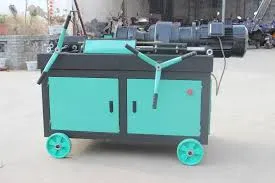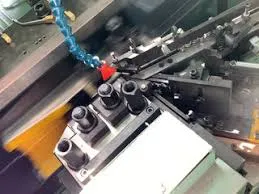
-
 Afrikaans
Afrikaans -
 Albanian
Albanian -
 Amharic
Amharic -
 Arabic
Arabic -
 Armenian
Armenian -
 Azerbaijani
Azerbaijani -
 Basque
Basque -
 Belarusian
Belarusian -
 Bengali
Bengali -
 Bosnian
Bosnian -
 Bulgarian
Bulgarian -
 Catalan
Catalan -
 Cebuano
Cebuano -
 Corsican
Corsican -
 Croatian
Croatian -
 Czech
Czech -
 Danish
Danish -
 Dutch
Dutch -
 English
English -
 Esperanto
Esperanto -
 Estonian
Estonian -
 Finnish
Finnish -
 French
French -
 Frisian
Frisian -
 Galician
Galician -
 Georgian
Georgian -
 German
German -
 Greek
Greek -
 Gujarati
Gujarati -
 Haitian Creole
Haitian Creole -
 hausa
hausa -
 hawaiian
hawaiian -
 Hebrew
Hebrew -
 Hindi
Hindi -
 Miao
Miao -
 Hungarian
Hungarian -
 Icelandic
Icelandic -
 igbo
igbo -
 Indonesian
Indonesian -
 irish
irish -
 Italian
Italian -
 Japanese
Japanese -
 Javanese
Javanese -
 Kannada
Kannada -
 kazakh
kazakh -
 Khmer
Khmer -
 Rwandese
Rwandese -
 Korean
Korean -
 Kurdish
Kurdish -
 Kyrgyz
Kyrgyz -
 Lao
Lao -
 Latin
Latin -
 Latvian
Latvian -
 Lithuanian
Lithuanian -
 Luxembourgish
Luxembourgish -
 Macedonian
Macedonian -
 Malgashi
Malgashi -
 Malay
Malay -
 Malayalam
Malayalam -
 Maltese
Maltese -
 Maori
Maori -
 Marathi
Marathi -
 Mongolian
Mongolian -
 Myanmar
Myanmar -
 Nepali
Nepali -
 Norwegian
Norwegian -
 Norwegian
Norwegian -
 Occitan
Occitan -
 Pashto
Pashto -
 Persian
Persian -
 Polish
Polish -
 Portuguese
Portuguese -
 Punjabi
Punjabi -
 Romanian
Romanian -
 Russian
Russian -
 Samoan
Samoan -
 Scottish Gaelic
Scottish Gaelic -
 Serbian
Serbian -
 Sesotho
Sesotho -
 Shona
Shona -
 Sindhi
Sindhi -
 Sinhala
Sinhala -
 Slovak
Slovak -
 Slovenian
Slovenian -
 Somali
Somali -
 Spanish
Spanish -
 Sundanese
Sundanese -
 Swahili
Swahili -
 Swedish
Swedish -
 Tagalog
Tagalog -
 Tajik
Tajik -
 Tamil
Tamil -
 Tatar
Tatar -
 Telugu
Telugu -
 Thai
Thai -
 Turkish
Turkish -
 Turkmen
Turkmen -
 Ukrainian
Ukrainian -
 Urdu
Urdu -
 Uighur
Uighur -
 Uzbek
Uzbek -
 Vietnamese
Vietnamese -
 Welsh
Welsh -
 Bantu
Bantu -
 Yiddish
Yiddish -
 Yoruba
Yoruba -
 Zulu
Zulu
ມ.ກ. . 09, 2025 12:24
Back to list
types of thread rolling machine
Thread rolling machines play an essential role in the manufacturing industry, serving to enhance production efficiency and precision in creating thread forms on various components. As industries shift towards automation and precision engineering, understanding the types of thread rolling machines becomes crucial for manufacturers aiming to select the right equipment that aligns with their production goals. This article delves into the different types of thread rolling machines, focusing on their functionality, advantages, and potential industry applications.
Advantages - Suitable for small diameter and delicate materials - Reduces material wastage - Ensures uniform thread depth and pitch 4. Three-Roll Thread Rolling Machine Three-roll thread rolling machines feature three symmetrically arranged roller dies that apply equal pressure around the workpiece. This setup allows for the rolling of both symmetrical and asymmetrical parts and is adept at handling eccentric workpieces. Their robust design makes them suitable for heavy-duty applications and industries that require precision and strength, like aerospace and oil & gas. Advantages - Handles eccentric and asymmetrical parts - Distributes forces evenly for higher accuracy - Suitable for heavy-duty applications 5. Hydraulic Thread Rolling Machine Hydraulic thread rolling machines utilize hydraulic pressure to facilitate the thread rolling process, offering precise control over rolling force and speed. These machines are versatile, capable of processing a wide range of materials and thread profiles, and are often used in custom or detailed applications where precision is paramount. Advantages - Precise control over force and speed - Versatile for complex and custom thread designs - Suitable for high precision applications Choosing the right thread rolling machine is pivotal for manufacturers targeting increased efficiency and quality in their production lines. Each type offers unique benefits tailored for specific applications and industry requirements. By understanding the different functionalities, manufacturers can make informed decisions that align their production capabilities with industry standards, thereby enhancing their competitive edge in a rapidly evolving market. Investing in the right machine ultimately leads to improved product quality, reduced operational costs, and increased profitability, all of which are critical factors for success in manufacturing.


Advantages - Suitable for small diameter and delicate materials - Reduces material wastage - Ensures uniform thread depth and pitch 4. Three-Roll Thread Rolling Machine Three-roll thread rolling machines feature three symmetrically arranged roller dies that apply equal pressure around the workpiece. This setup allows for the rolling of both symmetrical and asymmetrical parts and is adept at handling eccentric workpieces. Their robust design makes them suitable for heavy-duty applications and industries that require precision and strength, like aerospace and oil & gas. Advantages - Handles eccentric and asymmetrical parts - Distributes forces evenly for higher accuracy - Suitable for heavy-duty applications 5. Hydraulic Thread Rolling Machine Hydraulic thread rolling machines utilize hydraulic pressure to facilitate the thread rolling process, offering precise control over rolling force and speed. These machines are versatile, capable of processing a wide range of materials and thread profiles, and are often used in custom or detailed applications where precision is paramount. Advantages - Precise control over force and speed - Versatile for complex and custom thread designs - Suitable for high precision applications Choosing the right thread rolling machine is pivotal for manufacturers targeting increased efficiency and quality in their production lines. Each type offers unique benefits tailored for specific applications and industry requirements. By understanding the different functionalities, manufacturers can make informed decisions that align their production capabilities with industry standards, thereby enhancing their competitive edge in a rapidly evolving market. Investing in the right machine ultimately leads to improved product quality, reduced operational costs, and increased profitability, all of which are critical factors for success in manufacturing.
Share:
Latest news
Upgrade Your Production Line With Advanced Threading Solutions
NewsJun.12,2025
Optimize Precision With Advanced Thread Rolling Equipment
NewsJun.12,2025
Maximize Production With A High-Speed Thread Rolling Machine
NewsJun.12,2025
Master Precision Engineering With The Right Roller Threading Machine
NewsJun.12,2025
Find The Right Thread Rolling Tool For Precision Threading
NewsJun.12,2025
Boost Efficiency With Our Thread Rolling Machine
NewsJun.12,2025
